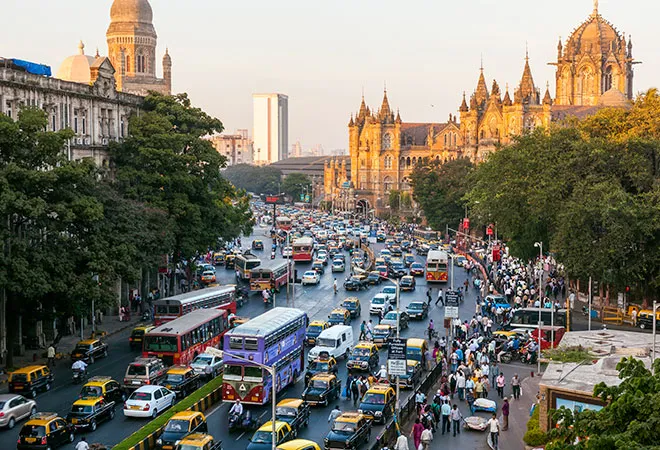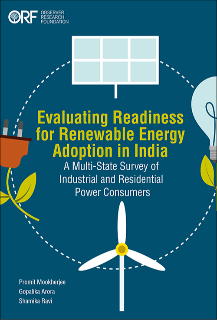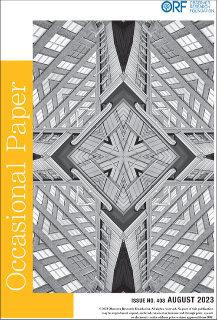
27th March 2020-three days post-national lockdown and almost a week-later post-Maharashtra partial-lockdown, an inquiry comes in for transporting ‘animal feed and fodder’ from Bhiwandi (in Maharashtra) to Vijaywada (in Andhra Pradesh). Animal feed and fodder’ being an essential item, government notification requests ground operators to facilitate inter-state movement of the same.
Yet, a SME road transporter having an experience of 30 years laments that he could not provide the requested-trucks to the client for inter-state movement of the same. The reason being he said, that because of the lockdown, the trucks that were available at the parking bay nearby Vashi (in Maharashtra) could not be driven to Bhiwandi. For trucks which were already available at Bhiwandi, no drivers/cleaners/labourers were available. The lockdown had triggered reverse migration of the drivers/cleaners/laborers to their native place, and the ones that chose to remain here only, were not allowed to load the material, during the lockdown especially, when curfew passes were not available. When curfew passes were eventually made available, we were already staring at a man-power crisis. So really, he said, we are in a chicken-egg problem. To top it all, he says that the local police harassment does not help. Even curfew passes made no difference to this situation of harassment. The operator said that the lock-down has meant an increase in freight charges too. This increase, he says, can mainly be attributed to (1). trucks not plying to their origin-destination location due to unavailability of sufficient material; (2). where trucks are available, shortage of man-power has left no juice in the lemon to squeeze anymore.
Unfortunately, he is not the only one who is staring at a crisis in the midst of a pandemic that has got India to her knees. There have been many reports floating in newspapers on the plight of road transporters sector arguing on similar lines of the trouble being faced by this sector.
While the government makes an effort issuing notices/orders/circulars facilitating inter-state vehicular movement, the problem of this sector appears to be deeper. As Ashok Goyal, Managing Director, BLR Logistics, in a video message on Twitter rightly said “…the ground reality is quite different”. To give an example on what happens on ground, the SME-transporter says let’s take two examples. Given the geographical dimension of India, these examples are based on the length of the journey. Demand and supply of the variables that constitutes the freight costs would determine the freight costs.
For example, for transportation of a 9 ton truck to transport essential goods for 1000kms (+ 100kms), for example – from Vijaywada (in Andra Pradesh) to Vashi (in Maharashtra) – a journey of approx. 1050kms, the total freight costs would be INR35000 based on following charges.
- Diesel consumption is approximately 220litres which at current price costs approx INR66/litre, comes to approx. INR14500.
- Additional charges including toll tax, plus miscellaneous expenses like (un)loading charges, insurance, vehicle maintenance, amongst others, approx. INR12000.
- Driver paid-charges (Bhatha as popularly called in the sector), INR300/day, INR900 for the three-day journey.
- Cleaner paid-charges (Bhatha), INR150/day, INR450 for the three-day journey.
- Journey-profit/loss to the transporter INR7000.
For transportation of a 9 ton truck to transport essential goods for more than 1000kms, for example, from Vijaywada (in Andra Pradesh) to New Delhi, a journey of approx. 1900kms, the total freight costs would be INR58000 based on following charges.
- Diesel consumption is approximately 380litres which at current price costs approx. INR66/litre, comes to approx. INR25000.
- Additional charges including toll tax, plus miscellaneous expenses like (un)loading charges, insurance, vehicle maintenance, amongst others, approx. INR20000.
- Driver paid-charges (Bhatha), INR300/day, INR1500 for the five-day journey.
- Cleaner paid-charges (Bhatha), INR150/day, INR750 for the five-day journey.
- Journey-profit/loss to the transporter INR10000.
In the current lockdown period where the trucks have to ply empty to their origin-destination, the SME-transporter says that for us to operate at a no-profit/no-loss cost, the total freight costs increase by 50%. In the above given examples, the freight increase would stand at INR17500 for approx1000km journeys and INR29000 for journey’s greater than 1000kms. 50% increase is based on diesel cost which is 40% of total freight costs as can be seen in the above examples, as well as other unavoidable charges such as Bhatha, and now accounting for an increase in wages due to shortage of drivers/cleaners/laborers.
His fear is that even at an increased freight-cost, the country is going to witness an acute shortage of truckers on the road as the support system for road transport sector has always been dismal at best, and the current lockdown does not help in bringing all the elements together to facilitate vehicular movement.
Given the life-line nature of the sector especially in pressing times like now, here are a few ways the government can provide an SOS to the sector thus indirectly ensuring timely distribution of goods across the country. These measures would also help in reducing journey time thus increasing the rate of vehicular movement, need of the hour.
- Trucks have to ply empty to their origin-destination, and diesel costs standing at approximately 40% of the total freight costs remains unavoidable. Relief in reducing diesel costs so as to compensate for increase in other charges such as laborer wages due to shortage of labor.
- Relief to truck operators whose EMI on truck-financing is outstanding at the time of lockdown.
- Inter-state border checking of trucks to be curtailed to not more than 15 minutes.
- Overloading of trucks should be banned for the period of lockdown to ensure faster plying of inter-state vehicles.
- A cell should be instituted where transporters can lodge complains of harassing police officers against whom strict action should be taken.
- A cell could be instituted to address road transporters problems with respect to providing greater clarification and effective implementation of government orders/notifications/circulars, by all players including State players.
- Greater clarity on what defines “essential” and “non-essential goods” given the new government order dated 29 March 2020 facilitates the transportation of all goods, without distinction of essential and non-essential goods.
- Permits/curfew passes to road transporters to be able to operate at their sanitized warehouses/office spaces.
None of the above measures should come at an irreversible cost, i.e. health of drivers/cleaners/laborers/working staff at warehouses and offices. These employees are facing a tougher question which is whether to hopefully return safely to their homes, or continue to risk their lives consequently that of their family members in case of contracting of virus and failure in treatment of the same. To address the same:
- Fumigation of empty trucks at the start and end of every journey.
- Sanitizing petrol pumps and respective staff, and warehouses/office spaces where loading and unloading would take place.
- Testing of drivers/cleaners/laborers at the beginning of every journey with evidence of testing to be made available through certificates. Also, testing of staff working at warehouses/office spaces. This measure would also cover people who otherwise would not have been tested.
- Provision of adequate ration and water being made available at petrol pumps for the drivers/cleaners.
- Current practice of paying drivers/cleaners extra amount to ply vehicles to reach destinations before estimated time of arrival, should not be encouraged.
The transporter says with a functioning support system we can surely make way for goods even at the time of a lockdown.
The views expressed above belong to the author(s). ORF research and analyses now available on Telegram! Click here to access our curated content — blogs, longforms and interviews.




 PREV
PREV


